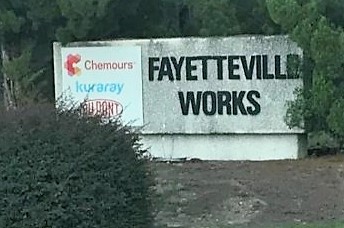 The thermal oxidizer facility at Chemours’ Fayetteville Works site became fully operational Friday, the company announced Friday.
The thermal oxidizer facility at Chemours’ Fayetteville Works site became fully operational Friday, the company announced Friday.
The thermal oxidizer is a requirement of a consent order put in place in early 2019 to hold Chemours accountable for PFAS contamination, including GenX, in the Cape Fear region, per a previous report.
Supporter Spotlight
“The consent order was designed to protect public health and the environment and provide relief to the communities around the facility and downstream,” said Sharon Martin, a spokesperson for the state Department of Environmental Quality, told Coastal Review Online in an email Monday morning.
“The deadline to begin operation of the thermal oxidizer by Dec. 31, 2019, and testing to confirm 99.99% reduction of PFAS emissions are required by the consent order to prevent further PFAS/GenX contamination. That compliance testing is scheduled for the end of January with results to follow a few weeks later,” she continued.
Fayetteville Works Plant Manager Brian Long said in a statement that the news marks a significant accomplishment in the company’s journey to reduce PFAS emissions.
The hope is that the company’s effort to reduce PFAS emissions from their manufacturing operations are a launching point for other PFAS manufacturers to make similar commitments around emissions reduction as well as “Demonstrate to our neighbors how seriously we take their concerns. Our next key milestone will be to demonstrate a 99.99% destruction efficiency of PFAS within 90 days,” he said.
DEQ and the Department of Health and Human Services launched an investigation in June 2017 on the presence of the GenX compound in the Cape Fear River. The Chemours’ Fayetteville Works was identified as the company that produces the GenX chemical for industrial processes, according to DEQ.
Supporter Spotlight
DEQ entered into a Consent Order with the company and Cape Fear River Watch February 2019. The order requires Chemours to address all sources of PFAS at the facility to prevent further impacts to air, soil, groundwater and surface waters.
Chemours has invested $100 million in the thermal oxidizer facility, according to the company, and, as part of the consent order, provided drinking water filtration systems to residents with wells that have certain levels of contamination.







